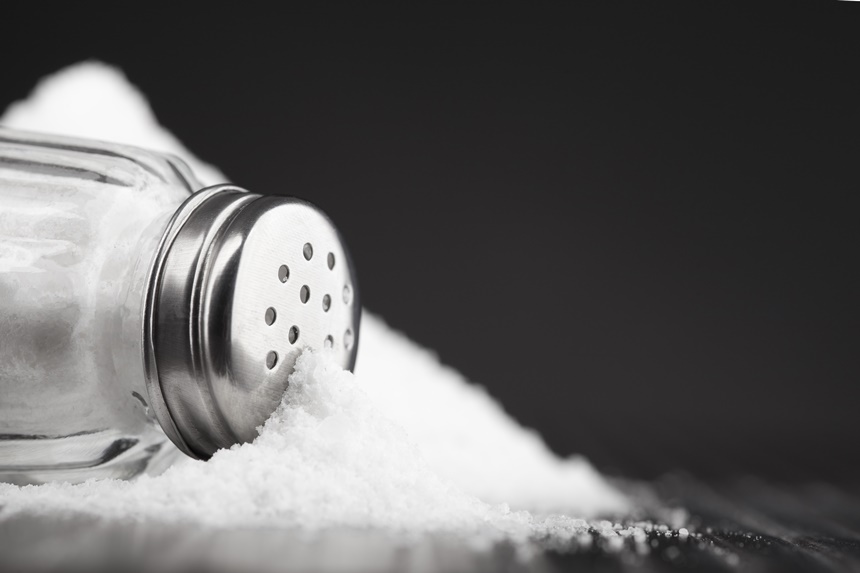“Your Weekly Checkup” is our online column by Dr. Douglas Zipes, an internationally acclaimed cardiologist, professor, author, inventor, and authority on pacing and electrophysiology. Dr. Zipes is also a contributor to The Saturday Evening Post print magazine. Subscribe to receive thoughtful articles, new fiction, health and wellness advice, and gems from our archive.
Order Dr. Zipes’ new book, Damn the Naysayers: A Doctor’s Memoir.
I don’t use a lot salt, either in cooking or on my food. My one exception is steak. A prime New York strip medium rare without salt to me is like a rose without a smell or a soda pop without a fizz. The salt makes a good taste even better.
The World Health Organization contends that most people consume too much salt, on average 9-12 grams per day or around twice the recommended maximum level of 5 grams per day. They estimate that 2.5 million deaths could be prevented annually if global salt consumption were reduced to the recommended level. They assume the salt reduction would lower blood pressure which in turn would reduce cardiovascular risk. They state that high sodium consumption ( greater than 2 grams of sodium per day, equivalent to about 5 grams of salt per day) and insufficient potassium intake (less than 3.5 grams per day) contribute to high blood pressure and increase the risk of heart disease and stroke.
Is this true? Should I switch to a low salt diet, deny myself the pleasures of a salted steak, to lower my risk of heart attack or stroke? After all salt (sodium) is an essential dietary nutrient.
Based on data from a recent study, the answer is no.
These investigators decided to test the WHO unproven assumption in the Prospective Urban Rural Epidemiology (PURE) study of 95,767 participants (aged 35 – 70 years) in 369 communities across 18 countries whose blood pressure was analyzed. They also analyzed cardiovascular events in 82,544 participants in 255 communities. They collected a morning fasting midstream urine sample to calculate 24-hour urinary sodium and potassium excretion, and these values were used as surrogates of intake. Participants were followed at 3, 6, and 9 years (median, 8.1 years).
The mean sodium intake (sodium, not salt; the latter would be about double that value) across all 369 communities was 4.77 grams per day, higher in China than in other countries (5.58 grams per day vs 4.45 grams per day). Blood pressure increased with greater sodium intake and was associated with an increased stroke rate in China compared to other countries. Heart attacks and mortality did not increase and in fact, higher sodium intake was actually associated with lower rates of heart attack and total mortality.
PURE noted that higher potassium intake found in fruit, vegetables, dairy products and nuts was associated with reduced risk of stroke and heart attack mortality and could counter potential harmful effects of excess salt intake.
The take home message from this observational study is that that both blood pressure and stroke increase with greater salt intake, but heart attack and mortality do not. If your blood pressure is normal, there seems little reason to restrict salt intake (but don’t go crazy) as an isolated public health change and that the current salt intake in the U.S. population seems acceptable. However, if your blood pressure is high, and not brought down to normal levels by appropriate medications, salt intake should be restricted. High quality foods with increased potassium content appear to be protective and such intake should be encouraged, especially for those with elevated blood pressure.
I will continue to salt my steak and maybe my morning scrambled eggs as well.
Become a Saturday Evening Post member and enjoy unlimited access. Subscribe now



